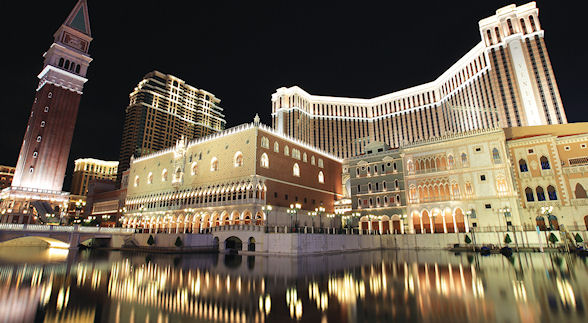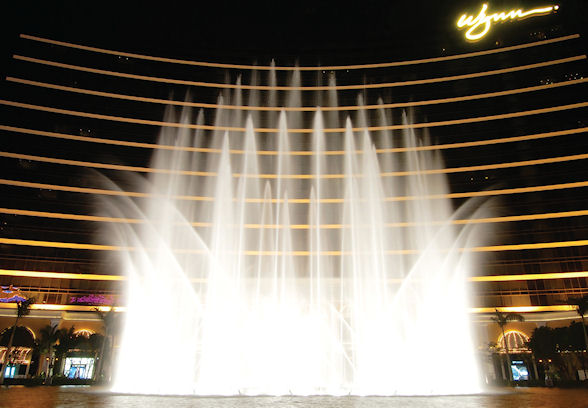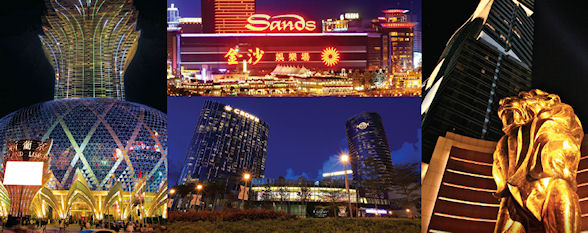This article first appeared in the May/Jun 2014 issue of World Gaming magazine.
The big talk around town over the next few years is bound to be the renewal of the licenses of Macau’s six gaming operators. In a series of columns beginning this issue, WGM’s gaming law contributor, Luís Mesquita de Melo, takes a look at this most important of issues for the industry.

Law 16/2001 (the “Macau Gaming Law”), published in Macau’s Official Gazette on 24 September 2001, was the first step of the Macau gaming market liberalization process that reshaped the Special Administrative Region of the People’s Republic of China into the world’s biggest gambling hub.
According to Macau gaming law, the operation of games of fortune, as well as electric and mechanic games by an entity other than the Macau Special Administrative Region is always subject to a prior concession granted through an administrative contract.
Pursuant to article 7, paragraph 2 of Macau Gaming Law, the maximum number of concessions for the operation of games of fortune in casinos is three. This provision of the Macau Gaming Law was never amended to accommodate more concessions or to allow sub-concessions or any other forms of gaming operations deriving from the original gaming concessions.
As we know, in order to accommodate competing business interests within the international public tender process for the awarding of the gaming concessions, the Macau Government subsequently allowed each of the three awarded concessionaires to enter into a gaming sub-concession agreement with an additional gaming operator, thus increasing the total number of concessions and sub-concessions to six.

The “creative” concept of the gaming sub-concession was never translated into a rule of law and remains purely as an endorsement provided by the Macau Government through side letters and written declarations.
In fact, although there are no legal rules regulating the gaming sub-concessions, it is nowadays generally accepted (and the government has recognized and acknowledged this in numerous pieces of correspondence exchanged with the gaming concessionaires and sub-concessionaires) that the gaming sub-concessions are independent from the gaming concessions (in the sense that termination of one gaming concession will not affect the validity and existence of the associated sub-concession) and are subject to the same legal framework and regulatory regime.
Therefore, we have in reality six gaming operators, independent from each other, holding the right to operate casino games of fortune or other casino games in Macau and all being subject to the same obligations and having the same rights.
Macau currently has three gaming concessionaires, namely Sociedade de Jogos de Macau, S.A. (SJM), Wynn Resorts Macau S.A. (Wynn) and Galaxy Casino S.A. (Galaxy). The three gaming sub-concessionaires are MGM Grand Paradise S.A. (MGM), Melco Crown Jogos (Macau) S.A. (Melco) and Venetian Macau S.A. (VML).
SJM’s gaming concession and the associated MGM gaming sub-concession both expire on 31 March 2020. The other four gaming concessions and sub-concessions expire on 26 June 2022.
The debate around the renewal of the existing gaming concessions and sub-concessions – as a matter of public policy – will necessarily involve bringing to the negotiating table broader industry issues around the number of concessions and sub-concessions, opening (or not opening) the Macau gaming market to new players, converting the sub-concessions into gaming concessions established directly between the Macau SAR and the respective gaming operators and addressing the legal status of the so-called “satellite casinos”.

Increasing the number of existing gaming concessions would require the Macau Government to amend Law 16/2001 which would involve submitting a proposal to the Macau Legislative Assembly to that effect. In practical terms, this means initiating a political debate with an uncertain outcome, considering the different political sensitivities represented in the Legislative Assembly, which clearly has a preponderantly conservative mindset.
On the other hand, the political debate around the number of gaming concessions and sub-concessions should be carried out considering the issue of the satellite casinos which should be addressed by the Government from a legal and regulatory standpoint.
As we know, there are a number of casinos being operated under so-called “service agreements” and/or “license of occupancy of casino floors”.
These agreements refer to legal binding actions, with the approval of the Macau Government, between a gaming concessionaire or sub-concessionaire and a commercial company to render services of marketing, promotion, recruiting of customers and providing management services for one or more casinos.
The nature of these gaming related operations should require a vetting process by the Macau Government in terms that not only create consistency with the legal and regulatory regime applicable to the approved gaming concessions and sub-concessions but also clarify the “role” of these service providers and their suitability, bringing them into the gaming legal regime as recognized “players”.
In the next issue of WGM, I’ll discuss the various negotiation scenarios we could see on the table relating to the terms and conditions the concessions and sub-concessions may face as part of the renewal process.
Luís Mesquita de Melo is a partner at MdME Lawyers | Private Notary, a leading Macau full service law firm. To contact Luís, email lmm@mdme.com.mo.







